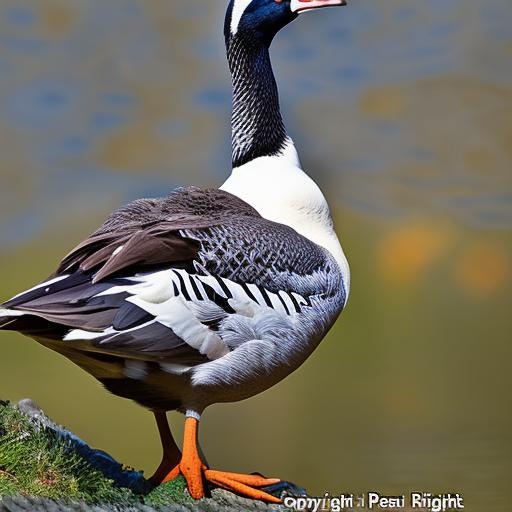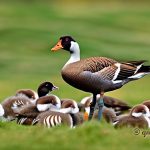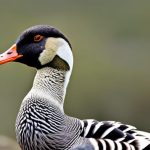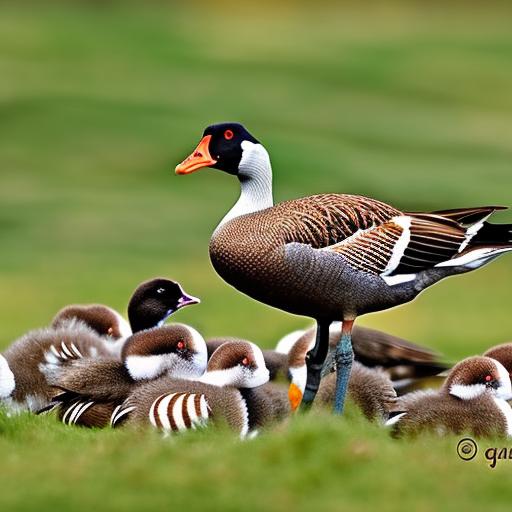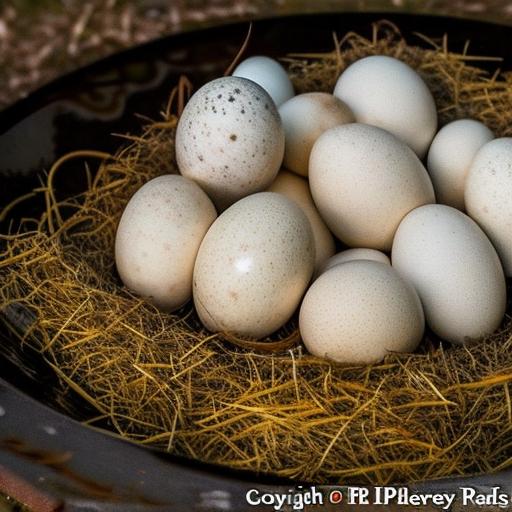French geese breeds are known for their unique characteristics and qualities that make them a popular choice for farmers and homesteaders. There are several different breeds of French geese, each with its own distinct features and benefits. Some of the most well-known French geese breeds include the Toulouse, the Pomeranian, and the Landes. These breeds are prized for their large size, excellent meat production, and calm temperament, making them an ideal choice for those looking to raise geese for both meat and egg production. French geese are also known for their beautiful plumage, with a variety of colors and patterns to choose from. Whether you are a seasoned farmer or just starting out, French geese breeds are a great addition to any farm or homestead.
French geese have a long history in France, where they have been raised for centuries for their meat, eggs, and feathers. They are well-adapted to the French climate and are known for their hardiness and ability to thrive in a variety of environments. French geese are also known for their strong maternal instincts, making them excellent parents and caretakers for their young. With their gentle nature and easy-going temperament, French geese are a joy to raise and can provide a valuable source of income for farmers and homesteaders alike.
Choosing the Right French Geese Breed for Your Farm
When it comes to choosing the right French geese breed for your farm, there are several factors to consider. Each breed has its own unique characteristics and qualities that make it well-suited for specific purposes. For example, the Toulouse breed is known for its large size and excellent meat production, making it an ideal choice for those looking to raise geese primarily for meat. On the other hand, the Pomeranian breed is prized for its beautiful plumage and is often raised for ornamental purposes. The Landes breed, with its calm temperament and good egg production, is a popular choice for those looking to raise geese for both meat and egg production.
It’s important to consider your specific needs and goals when choosing a French geese breed for your farm. If you are primarily interested in meat production, then the Toulouse breed may be the best choice for you. However, if you are looking for a breed that is well-suited for both meat and egg production, then the Landes breed may be a better fit. Additionally, it’s important to consider the climate and environment in which you will be raising your geese, as some breeds may be better adapted to certain conditions than others. By carefully considering these factors, you can choose the right French geese breed for your farm and set yourself up for success in raising these beautiful birds.
Housing and Feeding Requirements for French Geese
Proper housing and feeding are essential for the health and well-being of French geese. When it comes to housing, French geese require a secure and spacious enclosure that provides protection from predators and the elements. This can be in the form of a barn or coop with access to outdoor space for grazing and exercise. It’s important to provide ample bedding and nesting areas for your geese to ensure their comfort and safety. Additionally, proper ventilation is crucial to prevent respiratory issues and maintain good air quality within the enclosure.
In terms of feeding, French geese have specific dietary needs that must be met in order to keep them healthy and thriving. A balanced diet for French geese should consist of high-quality waterfowl feed that is formulated to meet their nutritional requirements. Additionally, providing access to fresh grass, greens, and insects can help supplement their diet and provide essential nutrients. It’s important to monitor their food intake and adjust their diet as needed based on their age, activity level, and overall health. By providing proper housing and meeting their dietary needs, you can ensure that your French geese are happy and healthy.
Health and Veterinary Care for French Geese
Maintaining the health of your French geese is essential for their overall well-being and productivity. Regular health checks and preventative care can help identify any potential issues early on and ensure that your geese remain in good health. It’s important to work with a qualified avian veterinarian who can provide guidance on proper care and treatment for your geese. Additionally, vaccinations may be recommended to protect against common diseases and illnesses that can affect waterfowl.
In addition to regular veterinary care, it’s important to provide a clean and sanitary environment for your geese to prevent the spread of disease. This includes regularly cleaning their enclosure, providing clean water sources, and monitoring their overall hygiene. It’s also important to observe your geese regularly for any signs of illness or injury, such as changes in behavior, appetite, or appearance. By staying proactive in their health care and providing a clean environment, you can help ensure that your French geese remain healthy and productive.
Breeding and Raising French Geese Chicks
Breeding and raising French geese chicks can be a rewarding experience that allows you to expand your flock and continue the legacy of these beautiful birds. When it comes to breeding, it’s important to select healthy and genetically diverse breeding stock to produce strong and resilient offspring. Proper mating practices should be followed to ensure successful breeding, which may involve pairing compatible mates based on their breed characteristics and traits.
Once the eggs are laid, they should be carefully incubated under controlled conditions to ensure proper development. It’s important to monitor the temperature and humidity levels during incubation to maximize hatch rates. Once the chicks hatch, they should be provided with a warm and safe environment to grow and develop. Proper nutrition is essential during this critical stage of growth, so it’s important to provide high-quality waterfowl feed that meets their specific dietary needs.
As the chicks grow, they should be gradually introduced to outdoor environments under supervision to acclimate them to their surroundings. It’s important to provide proper shelter and protection from predators during this time. By following these breeding and raising practices, you can help ensure the health and vitality of your French geese chicks as they mature into strong adults.
Utilizing French Geese for Meat and Egg Production
French geese are prized for their excellent meat production and can provide a valuable source of income for farmers and homesteaders. The Toulouse breed, in particular, is known for its large size and flavorful meat, making it a popular choice for those looking to raise geese primarily for meat production. Additionally, French geese are known for their good egg production, with some breeds laying up to 50 eggs per year.
When it comes to utilizing French geese for meat production, it’s important to follow proper processing practices to ensure high-quality meat that is safe for consumption. This may involve working with a professional processor who can handle the butchering process in a humane and efficient manner. Additionally, proper storage and handling practices should be followed to maintain the quality of the meat.
In terms of egg production, French geese can provide a valuable source of nutritious eggs that can be used for culinary purposes or sold for profit. By providing proper nutrition and care, you can maximize egg production from your flock of French geese. Whether you are interested in meat or egg production, French geese can provide a valuable source of income while also contributing to sustainable agriculture practices.
The Importance of Conservation and Preservation of French Geese Breeds
Conservation and preservation efforts are essential for maintaining the genetic diversity and heritage of French geese breeds. With the rise of industrial agriculture practices, many traditional livestock breeds have become endangered or at risk of extinction. By supporting conservation efforts, you can help ensure that these beautiful birds continue to thrive for future generations.
One way to support conservation efforts is by raising French geese on your farm or homestead. By maintaining a healthy breeding population of these birds, you can contribute to the preservation of their genetic diversity and heritage. Additionally, supporting organizations that work towards the conservation of traditional livestock breeds can help raise awareness and provide resources for these important efforts.
It’s also important to educate others about the value of preserving traditional livestock breeds such as French geese. By sharing their unique qualities and benefits, you can help raise awareness about the importance of conservation efforts. Whether you are a farmer, homesteader, or simply an advocate for sustainable agriculture practices, supporting conservation efforts for French geese breeds is essential for preserving their legacy for future generations.
In conclusion, French geese breeds are a valuable addition to any farm or homestead, offering excellent meat production, good egg production, and beautiful plumage. By carefully selecting the right breed for your specific needs, providing proper housing and feeding requirements, maintaining their health through veterinary care, breeding and raising chicks with care, utilizing them for meat and egg production, and supporting conservation efforts, you can ensure that these beautiful birds continue to thrive for generations to come. Whether you are an experienced farmer or just starting out, raising French geese can be a rewarding experience that contributes to sustainable agriculture practices while preserving an important part of our agricultural heritage.
Meet Walter, the feathered-friend fanatic of Florida! Nestled in the sunshine state, Walter struts through life with his feathered companions, clucking his way to happiness. With a coop that’s fancier than a five-star hotel, he’s the Don Juan of the chicken world. When he’s not teaching his hens to do the cha-cha, you’ll find him in a heated debate with his prized rooster, Sir Clucks-a-Lot. Walter’s poultry passion is no yolk; he’s the sunny-side-up guy you never knew you needed in your flock of friends!

